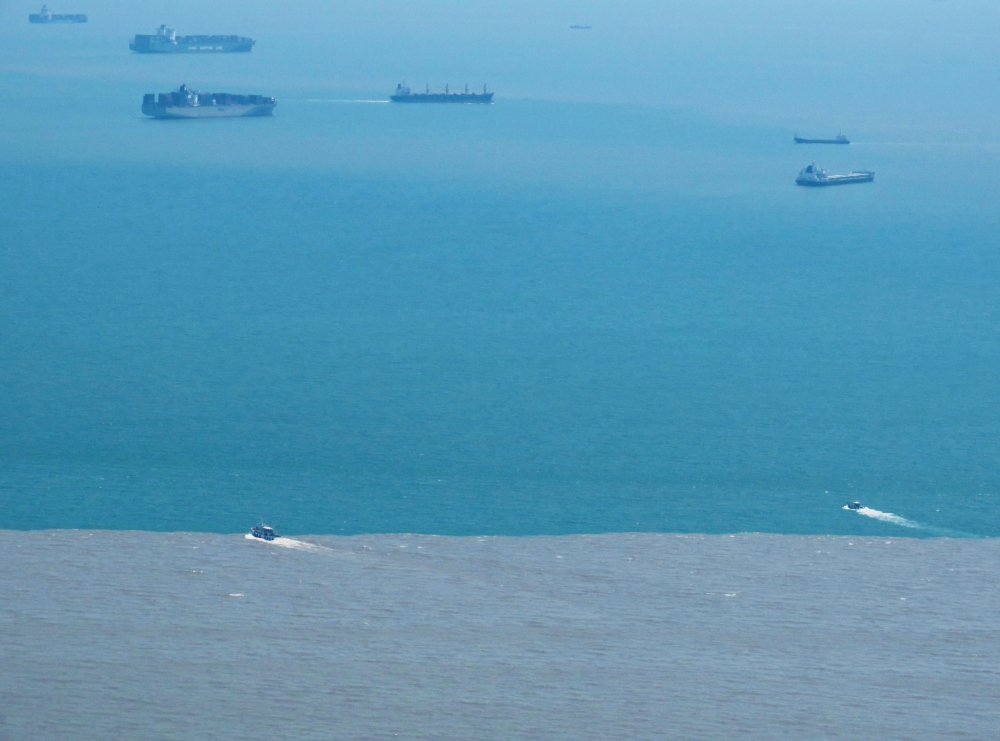The Ocean Has Become More Stratified with Global Warming
Date:2020-09-28
The global ocean has become more stratified and stable over the past few decades with global warming. This has major consequences for life in the ocean by reducing nutrients and oxygen, and it greatly affects climate.
A new study, by a group of international researchers from China and U.S., published in Nature Climate Change found that the global ocean has become more layered and resistant to vertical mixing as warming from the surface creates increasing stratification.
Sea water generally forms stratified layers with lighter waters near the surface and denser waters at greater depth, i.e. warmer fresher waters atop colder more saline ones. This stable stratified configuration acts as a barrier to water mixing that impacts the efficiency of vertical exchanges of heat, carbon, oxygen and other constituents. Therefore, the stratification is a central element of Earth’s climate system, and understanding its changes with global warming has great scientific, societal and ecological consequences.
As human-caused greenhouse warming has fundamentally altered oceanic temperature and salinity fields, impacts to stratification are expected but the details have been difficult to discern until now. The main basis for estimating the stratification change is the sparse distribution of ocean observations both horizontally and vertically. Previous quantification of stratification change has been limited to a simple index and has neglected the spatial complexity of ocean density change.

Ocean color difference when two water mass meets (Image by ZHU Jiang)
The new study overcomes the key limitations and provides an estimate on ocean stratification for the upper 2000m and also its spatial structures. This study used a carefully evaluated ocean temperature and salinity data (IAP products) which overcomes previous systematic biases associated with sampling. The study also adopted an improved metric of stratification (related to the density gradient over depth), and then provide a true estimate of ocean stratification and its changes.
The new data shows that ocean has become more stratified by 5.3% since 1960 for the upper 2000m. An even stronger ocean stratification increase, as much as 18%, has been observed for the upper 150m.
This observed long-term increasing trend of stratification is mainly caused by stronger ocean warming for upper layers versus the deep oceans (~97%), but salinity changes play an important role locally. This stratification increase reveals a robust human-driven change in the ocean due the long-term temperature and salinity change structures. Therefore, the observed ocean stratification increase is another irrefutable piece of evidence of human-driven global warming.
In the tropics, there is a very strong stratification increase at upper 200m. This indicates a significant change in tropical thermocline depth that is important to the El Nino phenomenon. In the middle and high latitudes, significant increases of ocean stratification appear below 500m, implying an impact on deep ocean stability by climate change.
The increase of ocean stratification feedbacks to climate change. With increased stratification, heat from climate warming cannot penetrate into the deep ocean as readily, which helps to raise the surface temperature. It also reduces the capability of ocean carbon storage, exacerbating the global warming. It prevents the vertical exchanges of nutrients and oxygen, and impacts the food supply of the whole marine ecosystems.
The authors of this study include LI Guancheng, CHENG Lijing, ZHU Jiang of the Institute of Atmospheric Physics, Chinese Academy of Science (IAP, CAS) and the CAS Center for Ocean Mega Science; Kevin E. TRENBERTH of the National Center for Atmospheric Research; and Michael E. MANN, with the Department of Meteorology & Atmospheric Science at The Pennsylvania State University; John ABRAHAM, of the University of St. Thomas School of Engineering.
This study was supported by the Strategic Priority Research Program of the Chinese Academy of Sciences (grant no. XDB42040402), National Key R&D Program of China (grant no. 2017YFA0603202) and Key Deployment Project of Centre for Ocean Mega-Research of Science, CAS (grant no. COMS2019Q01).
Reference:
Li, Guancheng, L. Cheng*, J. Zhu*, K. E. Trenberth, M. E. Mann, J. P. Abraham, 2020: Increasing ocean stratification over the past half century. Nature Climate Change. https://www.nature.com/articles/s41558-020-00918-2
Media contact:
Ms. LIN Zheng, jennylin@mail.iap.ac.cn
